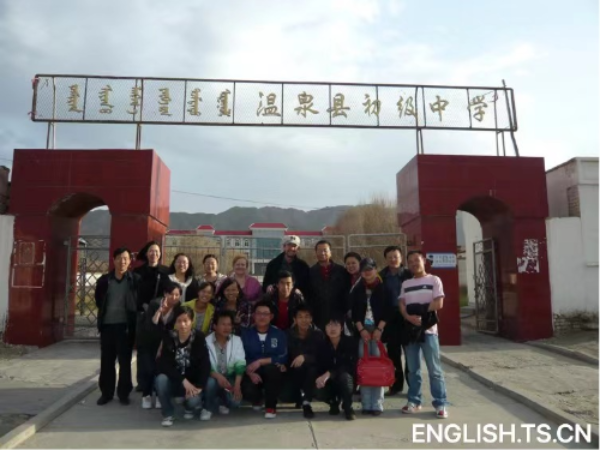Xinjiang was the first stop of my Chinese tour. Driven by its mystery, I arrived in Urumqi in 2006, not knowing what to expect, but eventually made teaching my lifelong passion and career. Not only did I visited numerous areas of Xinjiang during my twelve-year stay, but I also experienced the transformation of Urumqi, capital of Xinjiang, especially in the education field. I am grateful for everyone I have encountered, especially those I worked with at the universities. Supposed to be an outsider who could not communicate well in the local languages, I was embraced as a part of the family. This fully reflects the kindness and graciousness of the Xinjiang people.
The first time I went to a job interview for a foreign teacher position, I was mistaken for a student. I was a fresh graduate and obviously much younger. The interview was more like a nice chat with friends than a formal, boring one. I was ecstatic the moment I received a job offer; concurrently, I was fully aware that, as an English teacher, I had the responsibility to help my students improve their language proficiency while creating a stimulating language learning environment. Even though updated teaching materials were limited at that time, it did not demotivate me from encouraging students to reach high goals.
Training students for English public speaking contests has been one of the most enjoyable and valuable experiences of my teaching career. Other than high language and public speaking skills, students were required to have discipline and be fully committed. The training was very intense, and teachers and students had to take up extra time after class for the training. Keeping students motivated and focused was never easy but the teacher should always set an example. Months of hard work paid off when students enjoyed the learning process and teamwork. Their performance often exceeded my expectations, and growing together with the students was the most rewarding, which is more precious than the awards they won in the contests.

Mawis Kwok visits a junior high school in Wenquan County in Bortala Mongol Autonomous Prefecture, northwest China’s Xinjiang Uygur Autonomous Region in April 2011. (Photo courtesy of Mawis Kwok)
Over the years, I have often accompanied my superiors to various cities either to accompany students participating in contests or to visit schools in remote areas. It is impressive to witness the tremendous effort that educators from top Xinjiang universities have put into providing support in English teaching and learning. Although the results may not always be instant, the benefits of education are certainly lifelong. Whenever our students returned from their internships in rural areas or the English public speaking contests, their perspectives on many aspects were significantly widened. Their experiences have enabled them to see their potential and reset the goals they want to achieve academically and personally.
I left Xinjiang a few years ago before I had a chance to enjoy the new subway system in Urumqi. Though Xinjiang is no longer a mystery to me, it still holds a special place in my heart. Xinjiang is like a raw gemstone being cut and polished by generations of educators who share the same vision of turning it into a precious stone. The transformation is significant, but it has to go through progressive abrasion using fine grits of hard substances.
Mawis Kwok is from Canada and was formerly a professor at Xinjiang University.
Producer: Xiao Chunfei
Supervisors: Ding Tao and Jie Wenjin
Planners: Jie Wenjin and Cheng Li
Reviewers: Cheng Li and Hou Weili
Editor: Gvlzar Mijit









